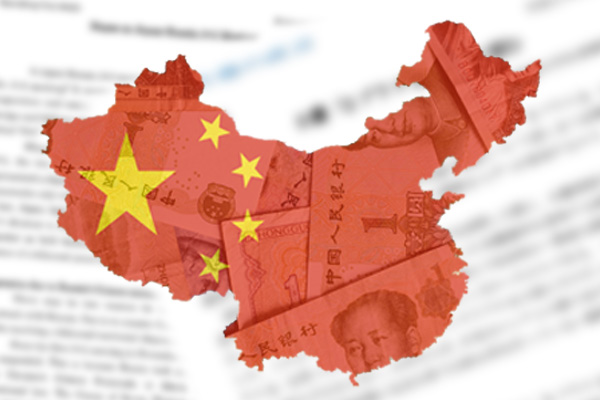At China’s National People’s Congress (a pseudo-parliament led by the Communist Party) that ended on March 11, the Xi Jinping government couldn’t present any effective policy to deal with the current recession caused by the bursting of the real estate bubble other than the unfounded prospect of high economic growth. However, there is something else to which we should be alert: Frustration over economic decline may drive Xi to overseas expansion.
Abandoned by Wall Street
As I argued in this column on January 22, China’s inflated gross domestic product (GDP) is clearly disguised. After Premier Li Qiang announced a real economic growth target of around 5% for this year at the beginning of the NPC, the Wall Street Journal on March 7 urged readers in its commentator’s article not to trust China’s growth data, reflecting the U.S. financial community’s view of the Chinese economy.
Just before the opening of the NPC on March 5, Bloomberg quoted the chief investment officer of Goldman Sachs Group Inc.’s wealth-management business as saying, “one should not invest in China.” A lack of clarity on China’s policymaking, along with patchy economic data, add to concerns about investing there, she said. Goldman Sachs, known as a leading Wall Street investment bank that had devoted itself to investing in China, has given up on the Chinese market at last.
The departure of foreign capital from China could further exacerbate the woes of the Chinese economy. China’s finance is dependent on foreign currency inflows. If foreign investment and loans decrease, China will not only be unable to take bold monetary easing measures but also face a limit on the issuance of government bonds for aggressive fiscal spending. In fact, monetary easing and fiscal stimulus for the domestic market announced by the Xi government at the NPC are limited to piecemeal levels, as seen last year.
China eroding the free and open world
If China’s economy continues to stagnate, the Xi government’s overseas expansion may not necessarily weaken. In fact, it may be enhanced. China’s military spending this year announced at the NPC scores a 7.2% increase from the previous year, well above its high economic growth target. President Xi, who has developed a national strategy of integrating the economy and national defense, has given top priority to the military.
Amid the recession caused by the bursting of the bubble, the government has already stepped up its external economic offensive. China’s exports to Russia and North Korea in 2023 jumped 1.8-fold and 7.8-fold respectively compared to before the outbreak of the Ukraine war. China’s inclination towards its Belt and Road Initiative (BRI) economic zone, including Russia and North Korea, has become tremendous. The zone’s share of China’s external trade in 2023 sharply increased to nearly 50% from earlier levels around 30%. The BRI share of China’s new overseas construction contracts under the name of economic cooperation rose to 86% from the earlier 50-plus % range.
China is also rushing to spread payments in Chinese yuan, or renminbi, to the BRI countries and regions. This amounts to the development of a renminbi-based economic bloc. China’s strategy aims to utilize these countries and regions as an outlet for its overproduction, exacerbated by the slump in domestic demand. Simultaneously, it seeks to infiltrate political and military influence, eroding the free and open world.
Hideo Tamura is a Planning Committee member at the Japan Institute for National Fundamentals and a columnist for the Sankei Shimbun newspaper.


